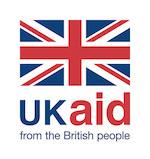This blog post is the first of a four-part blog series highlighting the work of four mobile network operators (MNOs) featured in our latest report, Partnering During Crisis: The Shared Value of Partnerships between Mobile Network Operators and Humanitarian Organisations. This blog series will shed light on each MNOs current engagement and future vision on their involvement in the humanitarian space, as well as their role in supporting the response to COVID-19.
Read the full report in English, and the executive summary and Zain Cash Iraq case study in Arabic
Interview with Yazen Altimimi, CEO of Zain Cash Iraq, the mobile money arm of the MNO Zain Iraq.
GSMA: As an organisation, what are you most proud of in terms of your engagements with humanitarian/development actors in Iraq?
Yazen: The innovation we have brought in is an important aspect of re-building Iraq’s society. For example, we use iris scan technology to enable recipients of UNHCR’s cash and voucher assistance (CVA) programmes to withdraw or use their cash without the need to show any identification documents – their iris is scanned to verify their identity.
By leveraging our mobile money infrastructure and widespread footprint in Iraq, we are easing and improving humanitarian organisation work in getting funds in a more efficient and effective way to the vulnerable communities and we are helping give beneficiaries the control and power to have more choice in how they manage their cash.
Additionally, working with humanitarian organisations to bring much needed assistance to those in need also helps Zain Cash stand out as a key contributor to Iraq’s future.
GSMA: What have been the biggest lessons that you have learned from working with humanitarian/development actors?
Yazen: For Zain Cash Iraq, the three biggest lessons are around ensuring regulatory compliance and ensuring mechanisms are in place to ensure smooth operations, specifically:
- Involve regulators with challenges faced from the start – by involving regulators from the beginning, we ensure that we are compliant with all regulatory requirements and that any obstacles encountered can be worked through quickly and collaboratively.
- Education and communication to be well thought of to avoid overflow of chaos – as long as everyone understands how the system works and where to go to find solutions to any challenges that occur, all misunderstandings or issues – small or large – can be handled without causing major disruption.
- Strong incentives and monitoring of agents network to ensure quality treatment – this is especially true when working with vulnerable populations. Our agents work on a three-strike rule to encourage compliance and best practice throughout our operations.
GSMA: Do you have any plans for future work in this space?
Yazen: Assisting humanitarian organisations will continue as long as vulnerable communities exist in Iraq. At the moment, I find the main help needed by humanitarian organisations is in cash deliveries, with little focus on what happens after cash is delivered. However, Zain Cash is helping one agency, WFP (the World Food Programme), in an attempt to digitise payments in camps by onboarding local merchants to mobile wallet platforms.
GSMA: What are you currently doing or planning to do in regards to support the response to COVID-19?
Yazen: We had difficult weeks during the total lockdown where we had challenges in delivering cash to beneficiaries. Social distancing and other lockdown rules presented us with a number of challenges, including:
- Inability to hold registration/education events;
- Beneficiaries were unable to reach agents for cash-out;
- Agents were forced to shut down during lockdown periods;
- Cash delivery from banks to super agents to agents shut down.
We however worked closely with the regulators to get the needed exceptions to deliver funds to the needed areas. After a week of lockdown, the Central Bank of Iraq issued an order to exclude financial services companies from the lockdown but police were not aware of it and so were closing agents and not allowing our staff to move around and to help with registration and cash management. After further engagement with regulators, we were able to have our names registered with the Ministry of Interior, which enabled our staff to move around more freely. We were not able to provide all services (like registration) during the period of lockdown but were able to provide cash-outs through iris scan technology in refugee camp settings, given no registration was required. Once the lockdown eased (3 weeks after being introduced), we started rolling out other services.
To find out more about Zain Cash Iraq’s experiences working with humanitarian organisations, read the full report in English, and the executive summary and Zain Cash Iraq case study in Arabic. Look out for future blogs with other MNOs from our Partnering During Crisis blog series in the coming weeks and months.



